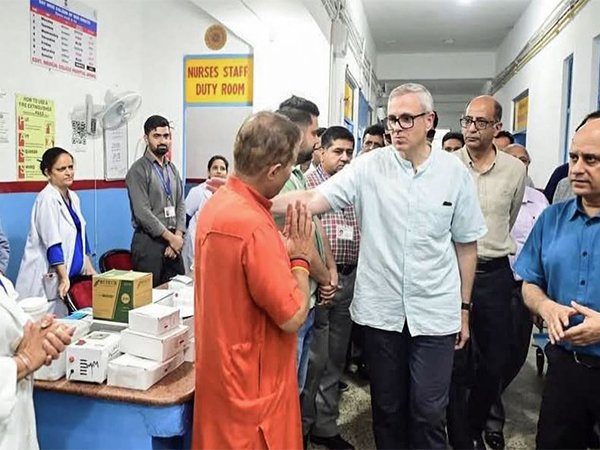
Bello vs EFCC: Trial Delayed Until June 26 as Commission Seeks to ‘Cross-Examine’ Own Witness
…You need to mark your witness as hostile prior to conducting the cross-examination – Defense Attorney
LAGOS
The Federal High Court in Abuja has postponed the proceedings regarding the suspected money-laundering charges brought against former Kogi State Governor Yahaya Bello by the Economic and Financial Crimes Commission. The court scheduled June 26, 27, and July 4 and 5 for deciding whether to allow the prosecution to cross-examine the third witness and to resume the trial.
Justice Emeka Nwite postponed the hearing following presentations from both the prosecution and defense attorneys regarding theProsecution’s intention to first conduct a cross-examination of the witness. This approach was opposed by Defense Counsel Joseph Daudu, SAN.
Once the discussion resumed regarding the continuation of cross-examination, Counsel for the Defendant inquired from the witness, Nicholas Ojehomon, if he had previously provided testimony in other judicial proceedings concerning the payments made by the Bello family towards school fees to AISA. The witness affirmed this.
However, the witness, who was an internal auditor at the American International School in Abuja, stated that they were unable to specify the exact courts.
He acknowledged giving testimony in a related case concerning Ali Bello, yet emphasized that he did not make any statements harmful towards ex-Governor Yahaya Bello. Similarly, he stated that his current charges do not include any adverse remarks about the governor either.
Following the conclusion of the cross-examination conducted by Daudu SAN for the witness, Nicholas Ojehomon, the prosecutor from EFCC, Olukayode Enitan,SAN, proceeded with his own cross-examination focusing on Exhibit 19.
He informed the court that he wasn’t re-examining the EFCC’s witness, but rather cross-examining due to the document having been accepted as evidence.
“I am not reviewing him; instead, I am conducting a cross-examination because they presented this document,” he stated.
However, the defense attorney pointed out to the court that the stance of the prosecuting counsel was not recognized by the law, as per the provisions of the Evidence Act.
“If you wish to cross-examine your own witness, you must first designate them as a hostile witness. Cross examination cannot be conducted solely based on documents,” asserted Daudu SAN.
Enitan SAN mentioned that he was entitled to bring certain specified sections of the document to the court’s notice.
At this juncture, the judge inquired, “Is there any statute that backs up your claim?”
“I would like to direct your lordship’s attention to Section 36 of the Constitution. The opposing party attempted to submit this document, we raised an objection, but the court decided in favor of them. Ensuring fair hearing requires that the complainant also has the right to review this document since Section 36 addresses the principle of fairness,” Enitan replied.
We aren’t stating that they can’t revisit the testimony of the witness. This is precisely what Section 36 of the legislation outlines regarding a fair trial. However, should they wish to cross-examine him, they must provide us with the legal basis supporting this action.
“The defendant’s attorney argued that ‘he cannot use the pretense of a fair hearing as an excuse to cross-examine the witness.’”
At the conclusion of the arguments, the judge denied the EFCC lawyer’s request to cross-examine the witness.
Following this process, the witness provides their initial testimony, after which the defense conducts cross-examination. Subsequently, the prosecution has the opportunity for re-direct examination.
“Respectfully, my approach would be for you all to proceed if you remain committed to continuing this. In that case, it’s best to direct your concerns to me directly, and I will then adopt a stance,” he declared.
At this stage, the prosecutor consented to revisit the testimony of the EFCC’s witness, and the judge approved his request.
“You have the option to question him again about that topic, but you must avoid asking questions that resemble cross-examination,” stated Justice Nwite.
When the prosecutor then conducted a re-examination of the witness, framing questions that seemed more like cross-examination, as noted by Daudu SAN, the judge required both sides to present their arguments specifically on this matter.
In his speech, the Defense Attorney argued that the stance held was not recognized by legal standards.
My lord, the approach proposed by the prosecution—referring the witness to the document submitted as Exhibit 19 and having them read paragraph one—is problematic,” he argued. “This method does so without highlighting the issues regarding how this document influenced their initial testimony, the questions raised during cross-examination, and the ambiguities requiring clarity. This process seems unusual and falls outside what is governed by the Evidence Act.
Enitan SAN, disagreed, saying that in the case of Amobi Amobi referred to by the defendant’s counsel, the Supreme Court held that the learned trial judge ought to have allowed a re-examination of Exhibit E.
When the defendant attempted to present the document, the prosecution argued that since it wasn’t created by the witness, they shouldn’t be permitted to discuss it during cross-examination or be faced with it.
“Since we have introduced this evidence now, during the prosecution’s case—especially during the cross-examination of PW-3—your lordship must ensure that they do not exclude us. Allowing such exclusion would be equivalent to permitting the court to adopt inconsistent positions,” argued Pinheiro SAN.
Justice Nwite then postponed the proceedings to June 26, 27, and July 4 and 5 for delivering a ruling and resuming the trial.
The 3rd prosecution witness had, at the last hearing on Thursday, said there was no wired transfer of fees from the Kogi State Government or any of the local Governments in the state to the account of the American International School, Abuja.
He additionally recited an excerpt from a prior Federal Capital Territory High Court ruling which stated that there was no court directive requiring AISA to refund the funds to the EFCC, nor had any verdict deemed the sum as illicit gains through money laundering.
Provided by SyndiGate Media Inc.
Syndigate.info
).
Share this content:


















Post Comment